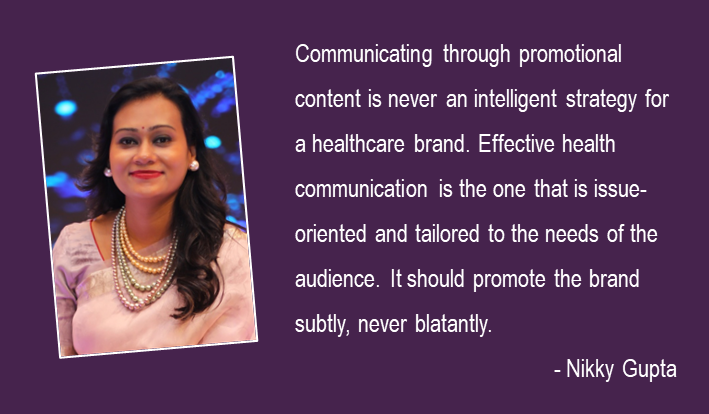For any patient, a doctor or a hospital is his first port of call. Or, for many, their last ray of hope. Perhaps no professional relationship between two individuals is as sacred and cherished as that of between a doctor and a patient. However, in recent times, for a plethora of reasons, an uneasy dynamic has come to pervade healthcare-patient relationship. The reasons could range from overburdened doctors/hospitals to inadequacy of supportive infrastructure to increasing commercialisation and the resultant distrust among patients. The mistrust and the perception that most corporate hospitals are out to fleece patients has also been fuelled by constant media scrutiny and reports of malpractices by medical practitioners. Unfortunately, a handful of negative news reports tend to cloud public perception and paint an entire sector as unscrupulous.
Apart from institutionalising fair practices, promoting better interpersonal relations between doctors and patients, the role of effective healthcare communication is also important in dealing with this wider mistrust. After all, an effective communication strategy is key to winning any battle of perception! Having a sustained and calibrated communications strategy not only helps healthcare organizations grab wider eyeballs, it also helps them nurture the image of socially conscious and responsible institutions.
Healthcare communication as an awareness tool
Communicating through promotional content is never an intelligent strategy for a healthcare brand. Effective health communication is the one that is issue-oriented and tailored to the needs of the audience. It should promote the brand subtly, never blatantly.
Therefore creating disease awareness and education has to be the central focus of any healthcare communication strategy. A healthcare brand looking to establish its name as a reliable organization must endeavour to improve health literacy among people. A well thought out and calibrated communication strategy helps increase awareness about health issues and influences behaviours and attitudes of consumers. It also seeks to address prevalent myths and miscommunications among the audience, caution them against unscientific approaches to disease management and demonstrate health practices for disease prevention. In doing so on a sustained basis, the organization strengthens its ‘brand recall’ and establishes an image of a trustworthy and dependable healthcare brand.
Establishing healthcare professionals as ‘humane’
Healthcare professionals including doctors, nurses and medical staff are central to the functioning of any healthcare organization. Essentially, an effective health communication must leverage strategies that enable healthcare professionals to be perceived as humane, compassionate and considerate. Covid 19 and the associated stories of intrepid healthcare workers working against time and fatigue to save lives every day has in recent times contributed to a large extent to creating a favourable perception for doctors and other healthcare workers. If the agenda is to build reliance and bridge the trust deficit, healthcare communication strategies must highlight stories of courage, resilience and grit that healthcare professionals display every day. It is equally important to highlight the challenging circumstances faced by doctors in a system plagued by shortage of healthcare professionals as well as economic and geographic disparities.
Developing empathetic thought leadership
A healthcare brand needs to regularly communicate with different stakeholders in an environment including people, industry as well as the government. While most of this communication is focused on securing the interest of the brand or sector, it is also important that the communication take into account the needs of common people. Even as a brand works to ensure a profitable business, it must keep highlighting the problems faced by common people – inequitable access to healthcare, geographical and economic disparities to access and the overall need to create a more affordable healthcare system.
Addressing the misinformation pandemic
Thanks to the Internet, people have easy access to information today. However, when it comes to healthcare, this easy availability of information can be a two-edged sword. Doctors will tell you how self diagnosis and even self treatment is a major challenge today. Additionally, misinformation and rapid spread of unscientific theories and treatment approaches through social media is a pandemic in itself. An earnest communication strategy must also focus on addressing such misinformation and ensure that people have access to the right information through reliable sources. Let’s illustrate this with an example. If a healthcare organization comes across a viral but false message on diagnosis or treatment of a disease, as a responsible institution it is pertinent that we respond to it and bust it through mainstream and social media.
It is fair to conclude that bridging of the trust deficit between healthcare sector and consumers will not happen overnight. However, a sustained, responsible and well-crafted healthcare communication strategy is key to addressing the chasm.
The views and opinions published here belong to the author and do not necessarily reflect the views and opinions of the publisher.



Be the first to comment on "Rebuilding trust with patients: Why effective communication is crucial for healthcare organisations"